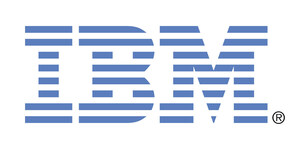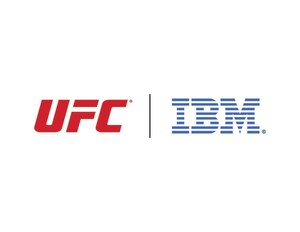JOHANNESBURG, Dec. 10, 2015 /PRNewswire/ -- IBM Research (NYSE: IBM) today announced a collaboration agreement with the City of Johannesburg and Council for Scientific and Industrial Research (CSIR) to apply advanced technologies to help the City deliver on its air quality management plan.
Building on IBM's global Green Horizons initiative, the partnership with the City of Johannesburg will leverage Internet of Things (IoT) combined with the analytical power of cognitive computing to provide insights and recommended actions to improve air quality and better protect the health of Johannesburg citizens. IBM is collaborating with South Africa's CSIR on this project. This will build on IBM and CSIR's Collaboration Framework Agreement that was signed formally in January 2015.
Researchers from IBM's South Africa research lab will work closely with experts from government and CSIR to analyse historical and real-time data from environmental monitoring stations in the City of Johannesburg, with a long term plan to extend the project across the Gauteng province to include the City of Tshwane and the Vaal Industrial Triangle. The objective is to uncover greater insight about the nature and causes of air pollution as well as model the effectiveness of intervention strategies. In the second phase, the programme will also be extended to include high-accuracy air pollution forecasting for planning and decision support and enable a proactive approach to air quality management.
"For Johannesburg to be a world-class African city, we need world-class solutions to deliver on pressing problems like air pollution," explained Nthatisi Modingoane from the City of Johannesburg. "This is where our partnership with IBM comes in. Using advanced decision analytics and pollution forecasting technologies, we will strengthen our air quality management strategies and gain greater situational awareness of the challenges at hand. Johannesburg is committed to ensuring a place where people and businesses are in harmony with the environment."
Johannesburg is the economic hub of South Africa, generating 17% of the country's GDP. Originally established as a mining town, the city's mine dumps, residential and traffic emissions generated by the city's population of approximately 4.5 million people are behind the city's air pollution which includes ultrafine particulate matter particles - the most harmful to human health. With high rates of continued urbanization, the City of Johannesburg government has put in place a comprehensive Air Quality Management Plan (AQMP) to mitigate the risk of increased levels of air pollution and ensure that the City's continued growth is not at the expense of environmental and public health. CSIR is currently working with the City of Johannesburg to update this plan.
IBM's Green Horizons initiative draws on innovations from the company's global network of research labs with contributions from leading environmental experts. At the heart of the initiative are air quality management systems which draw on vast amounts of environmental Big Data generated by thousands of sensors in environmental monitoring stations, traffic systems and meteorological satellites. Cognitive technologies understand this data, and use it to tune a predictive model that shows where the pollution is coming from, where it will likely go, and what will be its potential effect, allowing more informed decisions about how to improve air quality.
Machine learning technologies ensure that the Green Horizon system constantly self-configures, improving in accuracy and automatically adjusting the predictive models to different seasons and topographies. It blends various predictive models including traffic flow, weather forecasting, air pollution and economic data to help officials explore various 'what if' scenarios and better understand the consequences of certain actions, such as optimizing or changing traffic flows, relocating industry, switching to renewables and even introducing more green areas into the city. Feeding on the experience of other cities around the world, Green Horizons' pollution forecasting and scenario modelling capabilities can also help city governments make informed decisions about the construction and location of future industry, power generation facilities and roads.
"Air pollution is now the world's largest environmental health risk. While Johannesburg does not yet have the air pollution challenges to the scale of the world's megacities, continued economic and demographic growth mean that the city government must take action now to safeguard the future health of the city and its people," explained Solomon Assefa, Director of IBM's South Africa Research Lab. "The combined power of Internet of Things and cognitive computing means that understanding, managing and forecasting air quality today is more technically and economically feasible than ever before."
The new agreement builds on existing collaborations between IBM Research and the City of Johannesburg. In October, the two parties struck up a partnership to leverage IBM's Watson social media analytics capabilities to better understand the pulse of citizens towards the city's recent EcoMobility World Festival 2015 during which time people were encouraged to walk, cycle, car-share and use public transport as opposed to private vehicles.. During the Festival, IBM's data scientists used the company's world renowned Watson cognitive computing system to ingest and understand over 18,000 tweets from over 6,000 Twitter users. They provided the city with regular updates about public opinion towards the city's ecomobile' transformation.
"There is increasing focus on energy and environmental issues here in South Africa and around the world leading to new streams of investment and opportunities for innovation," said Dr. Sibusiso Sibisi, CEO of CSIR. "Working together, CSIR and IBM will explore how advanced technologies can help to better understand and improve society's relationship with the environment, bringing to bear local talent and best practices from some of the most environmentally challenged places on the planet."
This also builds upon CSIR's research into air quality and resultant health impacts in the city and province, including the recently completed Vaal Triangle Health Study and the ongoing project to assess and update the City of Johannesburg's air quality management plan.
About IBM Research
Now in its 70th year, IBM Research continues to define the future of information technology with more than 3,000 researchers in 12 labs located across six continents. Scientists from IBM Research have produced six Nobel Laureates, 10 U.S. National Medals of Technology, five U.S. National Medals of Science, six Turing Awards, 19 inductees in the National Academy of Sciences and 14 inductees into the U.S. National Inventors Hall of Fame – the most of any company.
IBM Research – Africa is IBM's 12th global research lab and the first industrial research facility on the continent of Africa. With facilities in Kenya and South Africa, IBM Research – Africa is driving innovation by developing commercially-viable solutions to transform lives and spark new business opportunities in key areas such as water, agriculture, transportation, healthcare, financial inclusion, education, energy, security and e-government.
The South African branch of IBM Research – Africa was announced by IBM's CEO Ginni Rometty in March 2015 and will be collocated with Wits University in the Tshimologong Precinct technology hub in Bramfontein, Johannesburg. The South African lab is part of a 10-year investment program through the Department of Trade and Industry working closely with the Department of Science and Technology.
For more information on IBM Research, please visit www.research.ibm.com
For more information on IBM Green Horizons please visit:
http://www.research.ibm.com/green-horizons/
Contacts:
Hulisani Rasivhaga
IBM South Africa
[email protected]
+27 11 302 6243
Jonathan Jessop Batty
IBM Global Labs
[email protected]
+44 7880 086571
Logo - http://photos.prnewswire.com/prnh/20090416/IBMLOGO
SOURCE IBM
Related Links
WANT YOUR COMPANY'S NEWS FEATURED ON PRNEWSWIRE.COM?
Newsrooms &
Influencers
Digital Media
Outlets
Journalists
Opted In






Share this article